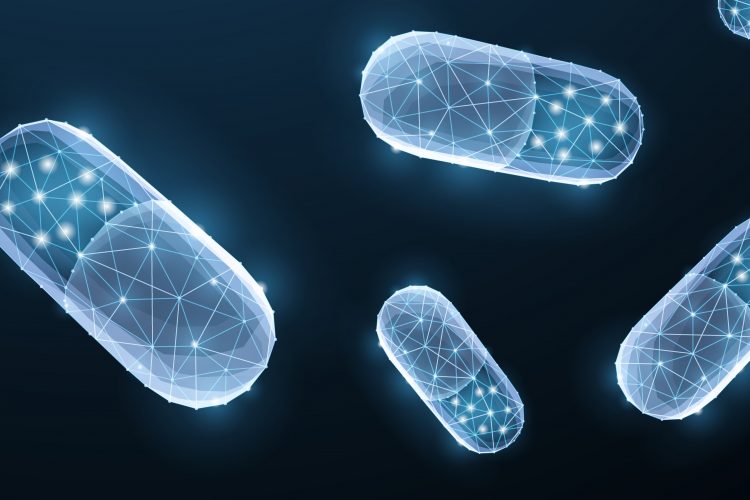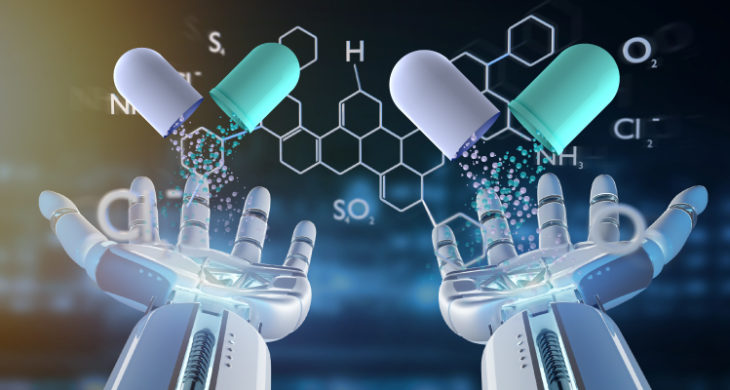The healthcare and pharmaceutical industries are undergoing a major transformation, thanks to Artificial Intelligence (AI). One of the most profound changes is in drug discovery and development, where AI is dramatically speeding up processes, reducing costs, and unlocking new possibilities for treating complex diseases. Traditionally, drug discovery has been an expensive, lengthy, and uncertain process. But with the power of AI, scientists and researchers are making unprecedented strides in identifying novel drug candidates, predicting patient responses, and optimizing treatments faster than ever before.
In this article, we’ll explore how AI is reshaping the drug discovery process, the technologies behind it, and the immense potential it holds for the future of medicine.
Introduction to AI in Drug Discovery
What Is Drug Discovery?
Drug discovery is the process through which new medications are discovered, tested, and developed. It involves identifying promising drug targets, designing molecules that can interact with those targets, and rigorously testing those molecules for safety and efficacy. The process traditionally takes several years—often over a decade—and involves extensive laboratory research, animal studies, and human clinical trials.
How AI is Revolutionizing Drug Discovery
Artificial Intelligence is transforming this age-old process by bringing speed, precision, and automation to drug discovery. AI algorithms can analyze vast amounts of biomedical data, identify patterns, and make predictions with a level of accuracy that would be nearly impossible for human researchers to achieve. As a result, AI is not only accelerating drug development but also increasing the likelihood of success at each stage of the process.
The Traditional Drug Discovery Process
Challenges in Drug Discovery
The conventional drug discovery process is plagued by several challenges, including a high rate of failure at clinical trial stages, slow timelines, and astronomical costs. It typically starts with identifying a disease target, followed by discovering compounds that might interact with the target. After selecting a lead compound, the drug undergoes preclinical and clinical testing before being submitted for regulatory approval. Throughout this process, a large number of potential drugs fail, leading to wasteful spending.
The Long Timeline and High Costs of Drug Development
The average time it takes to develop a new drug is about 10–15 years, and it can cost upwards of $2.6 billion. For many pharmaceutical companies, this high failure rate and the length of the development timeline make drug discovery a risky and expensive venture. AI promises to significantly shorten this timeline and lower development costs by improving the accuracy and efficiency of each stage.
AI Technologies Transforming Drug Discovery
Machine Learning and Deep Learning in Drug Discovery

Machine learning (ML) and deep learning (DL) are core AI technologies that have proven to be invaluable in drug discovery. These technologies use large datasets to learn patterns and make predictions without being explicitly programmed. By training AI models on existing medical data—such as genetic information, chemical structures, and clinical trial results—researchers can predict which compounds are likely to be effective against a given disease.
Natural Language Processing (NLP) for Data Mining
Natural Language Processing (NLP) is another powerful AI tool that helps researchers mine vast amounts of unstructured text data. Scientific literature, patents, and medical records often contain valuable insights about diseases and potential drug candidates. NLP helps AI systems quickly process and extract meaningful information from these sources, allowing researchers to uncover new drug targets and treatment options.
AI-Powered Predictive Models and Drug Screening
AI-powered predictive models can simulate how a particular drug candidate will behave in the human body. These models can help predict a drug’s effectiveness, potential side effects, and toxicity before it ever enters a clinical trial. In addition, AI can speed up the drug screening process by automating the testing of thousands of potential compounds in silico, significantly reducing the need for costly and time-consuming lab experiments.
AI in Target Identification and Validation
Understanding Disease Mechanisms
One of the first steps in drug discovery is identifying the underlying causes of a disease, which often involves understanding complex biological mechanisms. AI can analyze genomic, proteomic, and clinical data to uncover novel disease pathways, leading to the identification of new drug targets.
AI for Identifying Drug Targets
By analyzing vast amounts of biological data, AI can identify potential drug targets that may not be apparent through traditional methods. For example, AI has been instrumental in identifying new targets for cancer, Alzheimer’s disease, and autoimmune disorders, which may lead to the development of more effective treatments.
Reducing Risk of Failure in Early-Stage Development
AI models can predict the likelihood of success in early drug development stages, reducing the risk of failure and wasted resources. This predictive power allows researchers to focus on the most promising drug candidates, improving the overall success rate of drug discovery.
AI in Drug Design and Optimization
Designing Molecules with AI
AI can assist in the de novo design of molecules—creating entirely new compounds that are predicted to interact with specific disease targets. Using advanced algorithms, AI systems can design drug candidates with high specificity and lower risk of toxicity, providing researchers with an efficient pathway to developing effective therapies.
AI in Predicting Drug Interactions and Toxicity
Drug interactions and toxicity are major concerns during drug development. AI models can predict how different molecules will interact with one another, helping to identify and eliminate potentially harmful drug combinations early in the process. This capability allows for the creation of safer drugs with fewer adverse side effects.
Accelerating Lead Compound Optimization
AI can also optimize lead compounds by predicting which chemical modifications will enhance their potency, reduce side effects, or improve their pharmacokinetic properties (absorption, distribution, metabolism, and excretion). This accelerated optimization process reduces the time and resources needed to bring a drug from the lab to the clinic.
AI in Clinical Trials
Patient Stratification and Recruitment
AI can revolutionize clinical trials by improving patient stratification—the process of selecting patients based on specific characteristics that may influence how they respond to a treatment. AI algorithms can analyze patient data to identify individuals who are most likely to benefit from a particular drug, improving trial outcomes and reducing costs.
AI for Monitoring and Data Analysis
AI-driven tools can monitor patients during clinical trials in real-time, collecting and analyzing data from various sources, including wearable devices and lab tests. This enables continuous assessment of a drug’s safety and efficacy, reducing the need for extensive manual analysis.
Enhancing Clinical Trial Success Rates
By using AI to design smarter clinical trials and better identify suitable candidates, pharmaceutical companies can significantly improve success rates, moving more drugs from the research stage to approval.
Benefits of AI in Drug Discovery and Development
Faster Time-to-Market
AI reduces the time it takes to develop drugs by automating tedious tasks, predicting outcomes, and identifying optimal compounds more quickly than traditional methods. This leads to faster time-to-market, benefiting both pharmaceutical companies and patients in need of new treatments.
Reducing Costs of Drug Development
AI’s efficiency translates into significant cost savings. By eliminating the need for expensive trial-and-error processes and streamlining drug discovery, AI can make the development of new medicines more affordable, ultimately lowering the cost of drugs for consumers.
Increased Precision and Personalized Medicine
AI enables more precise drug development by tailoring treatments to individual patients based on their genetic makeup and health history. This approach, known as personalized medicine, promises to improve treatment outcomes and minimize side effects.
Case Studies: AI Success Stories in Drug Discovery
Insilico Medicine and the Development of AI-Generated Drugs
Insilico Medicine has harnessed AI to design novel drugs and predict their effectiveness. One of its most notable achievements is the development of a drug candidate for fibrosis that entered clinical trials in less than 18 months—much faster than traditional methods.
Atomwise and AI for Targeting Ebola and Malaria
Atomwise uses AI to discover new drug candidates for diseases like Ebola and malaria. By analyzing chemical structures and predicting interactions, Atomwise has discovered promising compounds that could lead to breakthroughs in treating these deadly diseases.
Challenges and Ethical Considerations in AI-Driven Drug Discovery
Data Quality and Availability
AI algorithms rely on vast amounts of high-quality data. However, in some cases, data may be incomplete, biased, or of low quality, which can affect the reliability of AI predictions.
AI’s Black Box Problem and Transparency
Many AI models, particularly deep learning models, function as “black boxes,” meaning their decision-making processes are often opaque. This lack of transparency poses challenges when trying to validate AI-driven drug development decisions.
Ethical Concerns in AI-Driven Medicine
As with any technology, there are ethical concerns about AI’s use in healthcare. Issues such as data privacy, informed consent, and bias in AI algorithms need to be carefully addressed to ensure fair and responsible use of AI in drug discovery.
The Future of AI in Drug Discovery and Development
The Role of AI in Precision Medicine
AI is a key enabler of precision medicine, which tailors treatments based on an individual’s unique genetic, environmental, and lifestyle factors. By combining AI with genomic data, researchers can create highly personalized therapies that offer better outcomes.
Integrating AI with Biotechnology and Genomics
The fusion of AI with biotechnology and genomics will allow for even deeper insights into how drugs work and how diseases progress. This integrated approach promises to uncover new treatments and therapies for a range of complex diseases.
The Next Frontier: AI for Rare and Complex Diseases
AI has the potential to unlock treatments for rare diseases that have long been neglected. By analyzing genetic data and identifying potential drug targets, AI can help researchers find solutions for conditions that currently have no cure.
Conclusion
Artificial Intelligence is transforming the drug discovery and development process in ways that were once thought impossible. By increasing the speed, accuracy, and efficiency of drug development, AI is ushering in a new era of personalized medicine and precision therapies. While challenges remain, the future of AI in pharmaceuticals looks bright, with AI enabling more treatments, faster approvals, and better outcomes for patients worldwide.
FAQs
How accurate is AI in predicting drug efficacy?
AI models are highly accurate in predicting drug efficacy by analyzing complex datasets. However, AI predictions are not foolproof and must be validated through clinical trials.
Can AI replace human researchers in drug discovery?
While AI is a powerful tool, it is unlikely to replace human researchers entirely. Instead, AI complements human expertise by automating repetitive tasks and providing insights that humans can act upon.
How will AI impact the cost of new drugs?
AI can reduce the cost of drug development by speeding up the discovery process, optimizing clinical trials, and improving the chances of success.
What diseases could benefit the most from AI drug discovery?
AI has the potential to benefit a wide range of diseases, particularly complex and rare conditions like cancer, neurodegenerative diseases, and autoimmune disorders.
Is AI involved in FDA drug approval processes?
AI is not yet directly involved in the FDA’s approval process, but it is being used to optimize drug development, which can help speed up the approval process.











